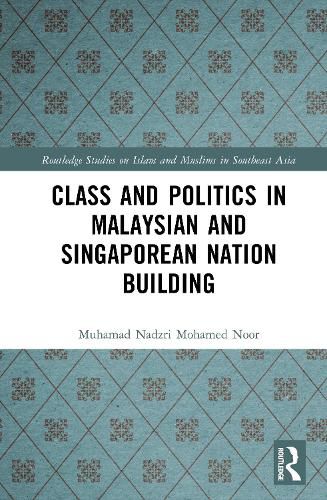Readings Newsletter
Become a Readings Member to make your shopping experience even easier.
Sign in or sign up for free!
You’re not far away from qualifying for FREE standard shipping within Australia
You’ve qualified for FREE standard shipping within Australia
The cart is loading…






Nadzri explores a range of factors that have influenced nation-building in Malaysia and Singapore, with principal emphasis on the importance of social and economic class.
In contrast to previous studies on nation building, which overwhelming rely on the explanatory power of culture, race and ethnic community, the book foregrounds the importance of social and economic status. The three main themes explored in this book are: how the nation-building projected in each country is driven by the class interests of its ruling elites; how elections have impacted the politics of nation-building; and how each country's nation-building policies are designed to build political loyalty and support for the ruling elites. The comparability of analytical outcomes using the prism of class interests uncovers the limitations of the explanatory power of race, ethnic community and culture in understanding the social and political dynamics of the two countries.
A valuable read for scholars and students of politics in Malaysia and Singapore, that will also be of interest to scholars of comparative approaches to nation-building.
$9.00 standard shipping within Australia
FREE standard shipping within Australia for orders over $100.00
Express & International shipping calculated at checkout
Nadzri explores a range of factors that have influenced nation-building in Malaysia and Singapore, with principal emphasis on the importance of social and economic class.
In contrast to previous studies on nation building, which overwhelming rely on the explanatory power of culture, race and ethnic community, the book foregrounds the importance of social and economic status. The three main themes explored in this book are: how the nation-building projected in each country is driven by the class interests of its ruling elites; how elections have impacted the politics of nation-building; and how each country's nation-building policies are designed to build political loyalty and support for the ruling elites. The comparability of analytical outcomes using the prism of class interests uncovers the limitations of the explanatory power of race, ethnic community and culture in understanding the social and political dynamics of the two countries.
A valuable read for scholars and students of politics in Malaysia and Singapore, that will also be of interest to scholars of comparative approaches to nation-building.